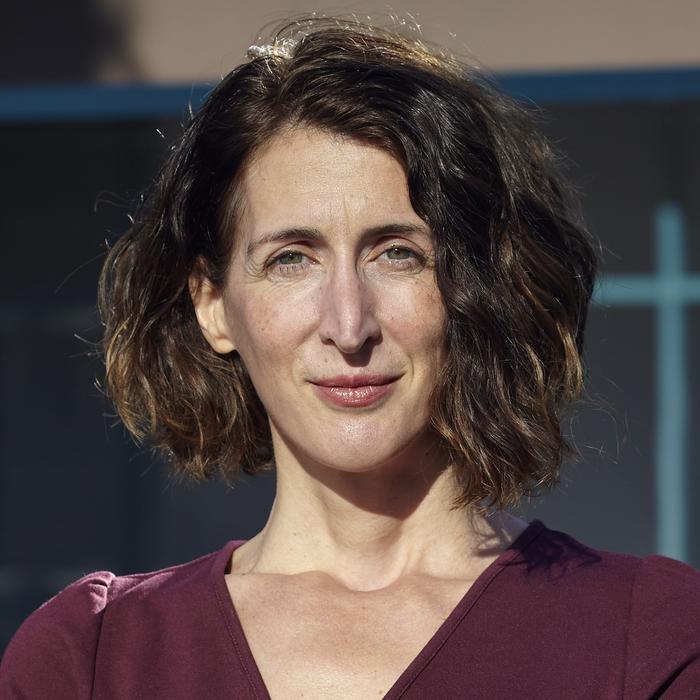[Vienna, April 11, 2024] – The European Research Council (ERC) has awarded an Advanced Grant to Mirta Galesic, a resident scientist at the Complexity Science Hub (CSH), to study the intricate workings of collective adaptation. The project aims to provide insights into why collectives – from families to entire societies – can be stuck in deadlocks about important problems, such as resolving long-standing political conflicts; or why they sometimes appear incapable of finding seemingly obvious solutions, such as vaccinating to curb the spread of disease.

Credit: © Kate Joyce
[Vienna, April 11, 2024] – The European Research Council (ERC) has awarded an Advanced Grant to Mirta Galesic, a resident scientist at the Complexity Science Hub (CSH), to study the intricate workings of collective adaptation. The project aims to provide insights into why collectives – from families to entire societies – can be stuck in deadlocks about important problems, such as resolving long-standing political conflicts; or why they sometimes appear incapable of finding seemingly obvious solutions, such as vaccinating to curb the spread of disease.
“Amid rapid technological changes and escalating global challenges, understanding our collective adaptation is crucial. Yet our scientific understanding here is lacking. This project seeks to bridge this gap by developing both theoretical frameworks and empirical research focused on uncovering the core cognitive and social mechanisms of collective adaptation. This will help us understand how we can achieve positive collective developments and stay away from harmful paths,” says Galesic.
Over a five-year period, Galesic and her team at CSH will be granted € 3 million. The ERC Advanced Grant is among the most prestigious and competitive in the EU, enabling senior researchers to pursue ambitious, curiosity-driven projects that could lead to major scientific breakthroughs, according to the ERC.
Create a bridge
In this project, Galesic aims to uncover the underlying mechanisms driving collective adaptation by bridging cognitive science, sociology, and computational modeling. Using computational models and empirical data from group experiments, longitudinal surveys, and natural language processing of textual corpora, the project intends to revolutionize our understanding of how collectives navigate complex problem landscapes.
“At the heart of our research lies the puzzle of collective adaptation – how human groups dynamically adjust their social structures and cognitive strategies to tackle multifaceted challenges,” explains Galesic, a leading expert in complex social systems. “By developing computational models grounded in empirical research, we aim to unravel the intricate interplay between social learning, belief dynamics, and network structures within collectives.”
Interdisciplinary
Galesic emphasizes the interdisciplinary nature of the project, which brings together experts from diverse fields to tackle complex societal challenges. “This project involves, in addition to myself, a senior researcher, two postdoctoral fellows, and three PhD students with backgrounds in psychology and cognitive science, anthropology and sociology, computer science, applied mathematics, and statistical physics,” says Galesic. “We’ll also hire research assistants to help conduct group experiments.”
“We will also organize workshops, summer schools, and longer research stays for researchers from other academic, civic, and policy institutions in Europe and around the world. This will enable a flow of ideas across sciences, between academia and the civic sector, and across different countries, and will establish CSH as the leading research institute in the world for the study of collective adaptation, further strengthening its reputation for research on complex social systems more generally”, pinpoints Galesic.
Relevance
“Our research has both theoretical and practical implications,” adds Galesic, who is also a professor at the Santa Fe Institute, and external faculty member at the Vermont Complex Systems Center. “By unraveling the dynamics of collective adaptation, we can pave the way for more effective strategies to address pressing issues such as climate change, social inequality, and extremism.”
_______________________________________________________________________________________
About the Complexity Science Hub
The Complexity Science Hub (CSH) is Europe’s research center for the study of complex systems. We derive meaning from data from a range of disciplines – economics, medicine, ecology, and the social sciences – as a basis for actionable solutions for a better world. Established in 2015, we have grown to over 70 researchers, driven by the increasing demand to gain a genuine understanding of the networks that underlie society, from healthcare to supply chains. Through our complexity science approaches linking physics, mathematics, and computational modeling with data and network science, we develop the capacity to address today’s and future challenges. www.csh.ac.at



